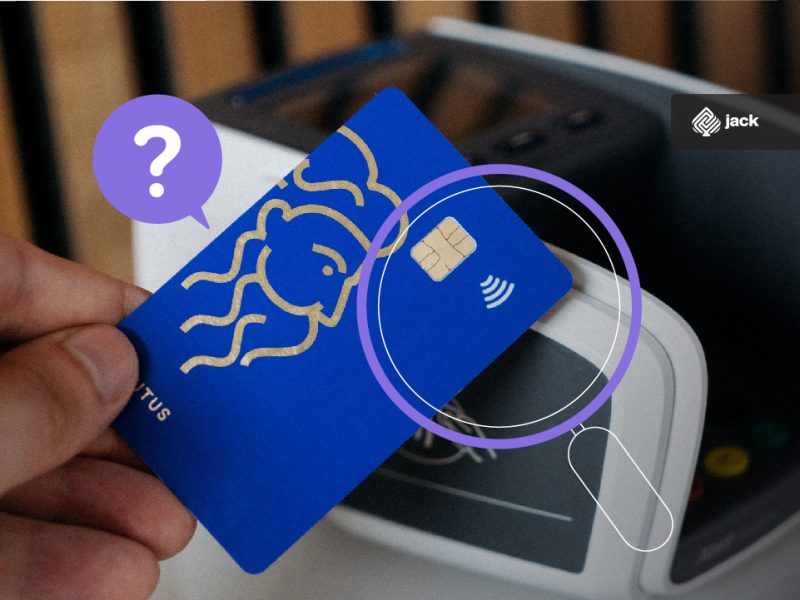Prepaid credit cards are the best solution for managing finances and easing business expenditures, with significant benefits for entrepreneurs who are starting their businesses. Tracking expenses and controlling costs can be a challenge for finance teams and companies as a whole.
Spend with Flexibility, Anywhere with Jack
Thus, using prepaid credit cards is the most suitable solution for overcoming these problems and avoiding obstacles when running a business that applies precise expense management strategies. This solution has caught the attention of business owners, ensuring the stability of their businesses and finances.
What is a Prepaid Credit Card?

A prepaid credit card is a type of credit card that has a credit limit based on the number of funds deposited by the cardholder. It works similarly to a regular credit card, but when making payments using the credit system, the owner can use the money that has been deposited on the card.
This credit card is popular among entrepreneurs, especially those in small and medium enterprises, as employees can be provided with cards when there are payment requirements related to their business.
The amount of funds can be adjusted according to the price of the item to be purchased, and transactions can be accessed directly by the business owner without having to wait for reports from employees.
Differences between Prepaid Credit Cards and Regular Credit Cards

1. Issuer
Prepaid credit cards are obtained by registering with a service offered by a bank or financial technology company, including expenditure management platforms and digital wallets. Regular credit cards are usually issued by banks with Visa, MasterCard, or similar networks.
2. Requirements for Obtaining a Card
Since regular credit cards are issued directly by banks, there is a credit history check process for those who want to have a credit card. If a person has or has had problems related to loan or credit payments, it can be challenging for them to obtain a credit card according to their needs.
There is always a minimum income requirement, domicile, employment status, and other requirements for having a credit card. These factors can make it difficult for entrepreneurs, especially those in small and medium enterprises, who have just started their businesses.
In contrast, to obtain a prepaid credit card, one only needs to register and pay the service fee charged to potential customers.
3. Types of Cards
There are many types of regular credit cards, from individual credit cards to business credit cards and corporate credit cards specially issued for business entities and employees. Prepaid credit cards, on the other hand, usually offer only one type of card that can be used for all payment needs on the same network.
4. Fees
Regular credit card use involves various fees that users must pay according to their bills, based on the amount of usage, withdrawal of balances, or delays in payment. In contrast, fees for prepaid credit cards are very diverse, ranging from balance loading to service fees, and there are prepaid credit cards that only apply service fees without additional charges.
5. Risk of Loss and Fraud
If a regular credit card is lost or illegally misused, there is no risk of losing the user’s funds, as everything is covered by the issuer according to the applicable regulations. In contrast, if a prepaid credit card is lost or stolen, all the deposited funds will be lost.
6. Features
Regular credit card use offers various attractive programs such as discounts, rewards, cashback, or miles for using the card. In contrast, prepaid credit cards typically offer limited reward programs, with more focus on balance loading, service fees, and other basic features.
Furthermore, the use of a regular credit card has been recorded in a credit history, so if the payments are made smoothly, the user will certainly find it easier to obtain a loan from a bank, including getting business credit. This requirement is not applied to prepaid credit cards because they have no influence on obtaining a loan from the bank concerned.
Functions of Prepaid Credit Card

1. Facilitating Employees
If employees are equipped with this card, they will not have to go through the hassle of withdrawing cash from the bank, carrying cash from the company, or making transfers through ATMs or bank tellers. Payment transactions become faster and more concise when using this card through an EDC machine.
2. Controlling Expenses
The owner of the prepaid credit card can adjust the card’s available balance, allowing business owners, as the highest responsible party in the company, to monitor and control the expenses incurred by employees or divisions.
In addition, notifications can be received every time a transaction is made using the card, and if there is any suspicion, the business owner or authorized manager can immediately freeze the card balance for further evaluation.
3. Efficient Financial Report Preparation and Recording
Every use of the prepaid credit card comes with a record of expenses, including the amount of money spent, the time of the transaction, the recipient of the payment, and other important information to help with the process of preparing and recording financial reports.
The financial team will not have to waste time collecting receipts or invoices to settle each transaction made for financial reporting purposes.
See also video tutorials from financial and business from Jack.






